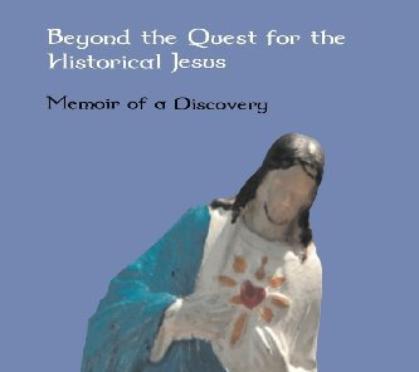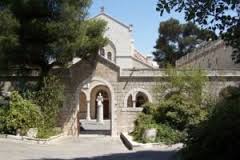 Dominican priest Thomas Brodie has written an autobiographical narrative of how he came to the realization that the New Testament writings about Jesus, in particular the Gospels, do not derive from reports about the life and teachings of an historical person at all but are entirely sourced and re-created from other theological writings. The Jesus of the Gospel narratives was created as a kind of parable or theological symbol.
Dominican priest Thomas Brodie has written an autobiographical narrative of how he came to the realization that the New Testament writings about Jesus, in particular the Gospels, do not derive from reports about the life and teachings of an historical person at all but are entirely sourced and re-created from other theological writings. The Jesus of the Gospel narratives was created as a kind of parable or theological symbol.
Eventually Brodie’s literary studies of the New Testament led him to go even further than realizing the Jesus narratives were entirely theological-literary creations. The same even had to be concluded of the persona behind the bulk of the New Testament epistles.
His book, Beyond the Quest for the Historical Jesus: Memoir of a Discovery, is a recounting of how his ideas developed and also of the lessons he learned along the way as he attempted to share and subject his research to independent scholarly criticism.
More, it is also a survey of the history of scholarly interpretations of the Bible, sweeping the reader through a panoramic view of how we got to where we are today with how we critically read the Bible.
Anyone not aware of Brodie’s background can learn a little more from my earlier posts in relation to Beyond the Quest. (Check the Index of Topics drop-down list in the right margin to see posts on other works by Brodie.)
Beyond the Quest is divided into five parts. Below are the intellectual themes of each part. These are narrated within the context of Brodie’s own life-experiences, exchanges with other (sometimes highly prominent) scholars, personal aspirations and challenges. He also reveals the background to each of his major publications.
- Part 1
- Learning the fundamentals of historical criticism. . . .
- Part 2
- Discovering literary sources of the Gospels
- Part 3
- Discovering the practices of the wider literary world and how they illuminated the New Testament writings in unexpected ways
- Part 4
- Grasping the first rule in historical inquiry (see my earlier post for an outline of Brodie’s chapter here), understanding the flaws in the oral tradition arguments (posts one, two, three, four detail his arguments from his earlier book), and the fate of Paul.
- Part 5
- What this means for Christian origins and for Christianity today.
The book concludes with an epilogue reviewing Bart Ehrman’s Did Jesus Exist?
In this post, Act 1, Scene 1, I’ll highlight the principle intellectual discoveries in Brodie’s early career as a student. These in themselves are well-known today among most readers with a critical interest in the Bible. They do not themselves directly lead to Brodie’s mythicist views. But we need to start at the beginning. There is much of Brodie’s own personal experiences that form the background to his education, and I encourage anyone interested to read his book to appreciate a little the personal odyssey this proved to be for Brodie. There is much of human interest as he relates his intellectual journey to his personal and wider social experiences.
And more than that, the reader will likewise begin to share Brodie’s learning and understanding of the sweep of critical biblical studies since the eighteenth century and even earlier.
Part 1
The First Revolution: Historical Investigations
Chapter 1
At one moment in his high school years Brodie was struck by the “extraordinary experience of depth and calm and truth” in Jesus’ farewell speech in the Gospel of John. He went on to learn by heart that entire Gospel.
One day an older Dominican remarked casually that the words of Jesus in the Gospels were not necessarily the exact words Jesus spoke. Brodie describes the slightly disheartening feeling that probably many other young believers have felt on first learning this.
But that is the sort of stuff most of us go through in our teen years. We learn to understand more the ways of the world, accept reality, and move on with faith unshaken or even cemented.

Then in the 1960s Brodie was taught in the tradition of Jerusalem’s Dominican-run biblical school, Ecole Biblique, a school that emphasized history and archaeology. Here is where Brodie was introduced to the historical-critical method.
“Historical” means trying to establish the facts.
The process is like that of a wise court-room where the facts of a case are in doubt, or of a calm history department in a university. The various biblical accounts of an event or life are examined individually, compared with one another, and compared also with other accounts or with other pertinent evidence. (p. 4)
Example. The Book of Jonah. Continue reading “The Making of a Mythicist, Act 1, Scene 1 (Thomas Brodie’s Odyssey)”
